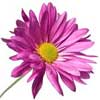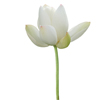Acupuncture
Traditional acupuncture is a healthcare system based on ancient principles which go back nearly two thousand years. It involves the insertion of very fine needles in specific points on the body. What makes this system so uniquely suited to modern life is that the physical, emotional and mental are seen as interdependent, and reflect what many people perceive as the connection between the different aspects of their lives.
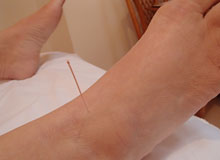
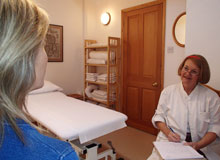
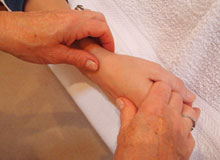
Rather than deal with individual symptoms, traditional acupuncturists treat the whole person. Each patient is unique; two people, presenting with the same symptoms may well receive different acupuncture treatments. The underlying principle of treatment is that illness and pain occur when the body's qi, or vital energy, cannot flow freely. Diagnosis involves discovering where the blockages are and the use of needles in specific points stimulates the body to open up the pathways.

